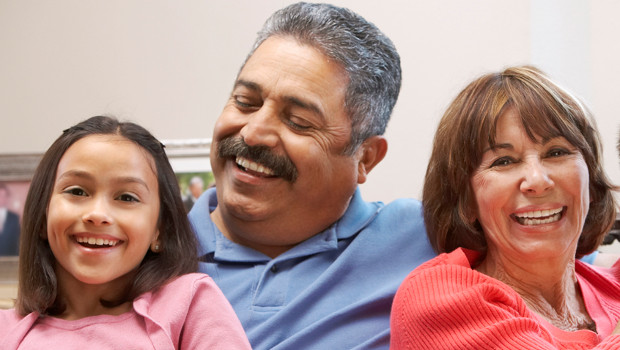Diabetes workshops in underserved communities set to launch this year

A Spanish-language version of this article is available here: Se ofrecen talleres de diabetes en las comunidades marginadas este año
Dr. Katherine Newton reports that three Washington community health organizations will offer peer-led, diabetes self-management workshops
I’m on a new journey as a health care researcher. During my 20-year career, almost all my research has been done within Group Health or similar health care systems. That changed about two years ago, with a funding opportunity from the Washington State Attorney General’s Office. The state had more than $2 million from a class action lawsuit for grants to benefit Washington residents with type 2 diabetes. My GHRI colleagues and I were thrilled to receive three years of funding to offer a series of diabetes self-management workshops to people who usually do not have access to this type of program.
What followed has been an adventure. We wanted to focus our work on rural and underserved populations (including the Latino community) who are at particularly high risk for type 2 diabetes, so we first travelled outside our home base in Seattle to meet with community partners east of the Cascades who might launch the program with our assistance. I had heard about the challenges of providing health care for people who have trouble getting to clinics because of transportation and work and family commitments, or can be difficult to contact because they move often for seasonal work. But meeting with leaders and staff at community health organizations taught me about these challenges in a deeper way. I also learned about other barriers these organizations face in providing diabetes care. For example, what does a provider do when diabetes carries a cultural stigma or patients are concerned they could lose their job if their employer finds out they have this condition? Yet, if the condition goes uncontrolled, the risk of diabetes complications rises, threatening the ability to work.
Three community health organizations step forward
I’m pleased that we are making a start at overcoming these challenges by bringing the Diabetes Self-Management Program, developed at Stanford University and available in English and Spanish, to underserved communities in Washington. These peer-led workshops are possible because we have established collaborations with three fantastic groups:
- The Benton-Franklin Health District in Central Washington, which provides health care, including preventive services, to people across more than 3000 square miles. The area has one of the highest diabetes rates in the state.
- Community Choice, a nonprofit provider network in Wenatchee, which works to improve access to care, health care quality and cost containment. We’re using their Health & Education Institute platform to offer educational and self-management programs in partnership with other nonprofit organizations and social service partners in the area.
- Inland Northwest Health Services, which provides high-quality health education in Eastern Washington. They have provided diabetes education for 20 years, and are eager to spread the workshops by collaborating with health care partners and systems throughout the Spokane area.
Our team—Anne Renz, Ileana Ponce-Gonzalez, Michael Parchman, Rob Reid, Paul Fishman, and Janet Hendrickson—is excited to see progress: we’re finding peer leaders and starting their training. The availability of the workshops in Central and Eastern Washington was limited in English and nonexistent in Spanish, and we are going to change that! All three organizations will offer the program in English, and the Benton-Franklin and Community Choice locations will offer them in Spanish.
More work needs to be done, but we are on our way towards changing people’s lives in what we hope will be a very real way. This program is just one example of how GHRI is reaching beyond our walls to serve our mission to improve health and health care for everyone.
Katherine Newton, PhD
From Group Health
Living Well workshops
Read about the program offered to Group Health members in Western Washington.


